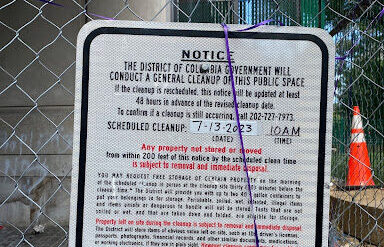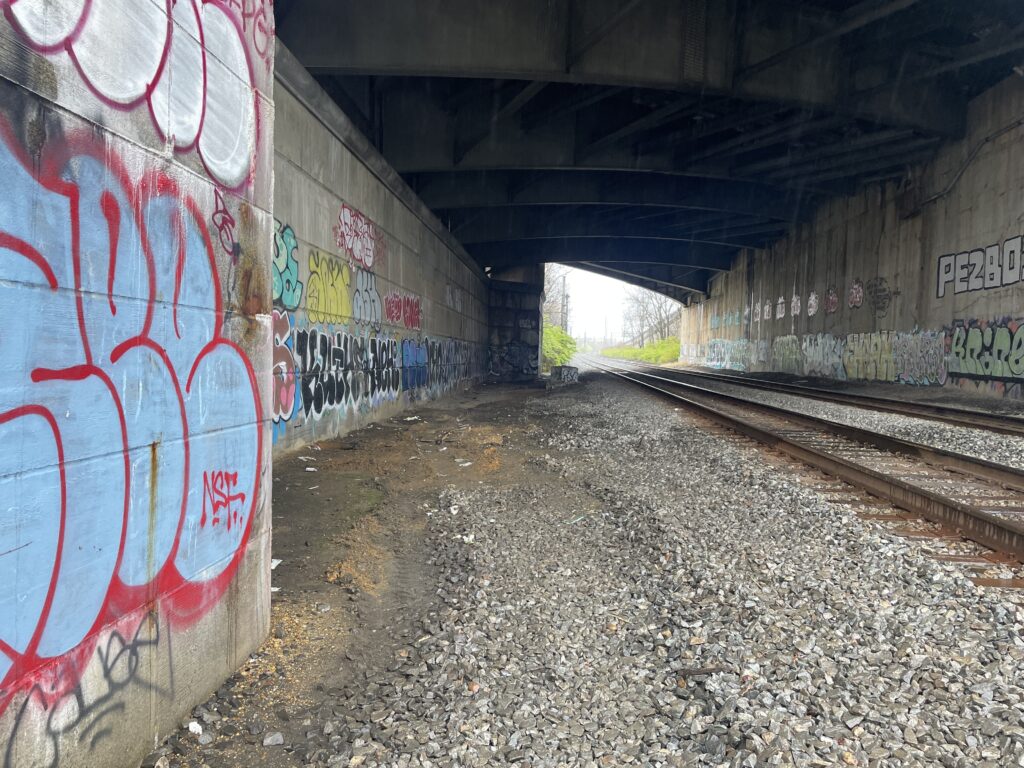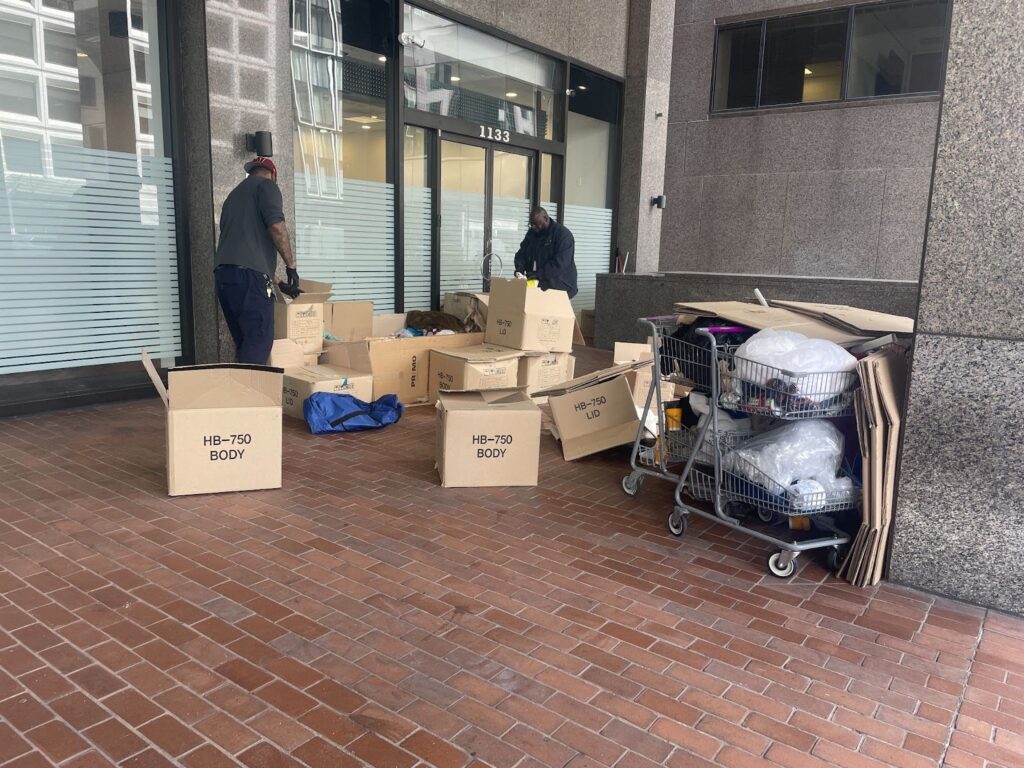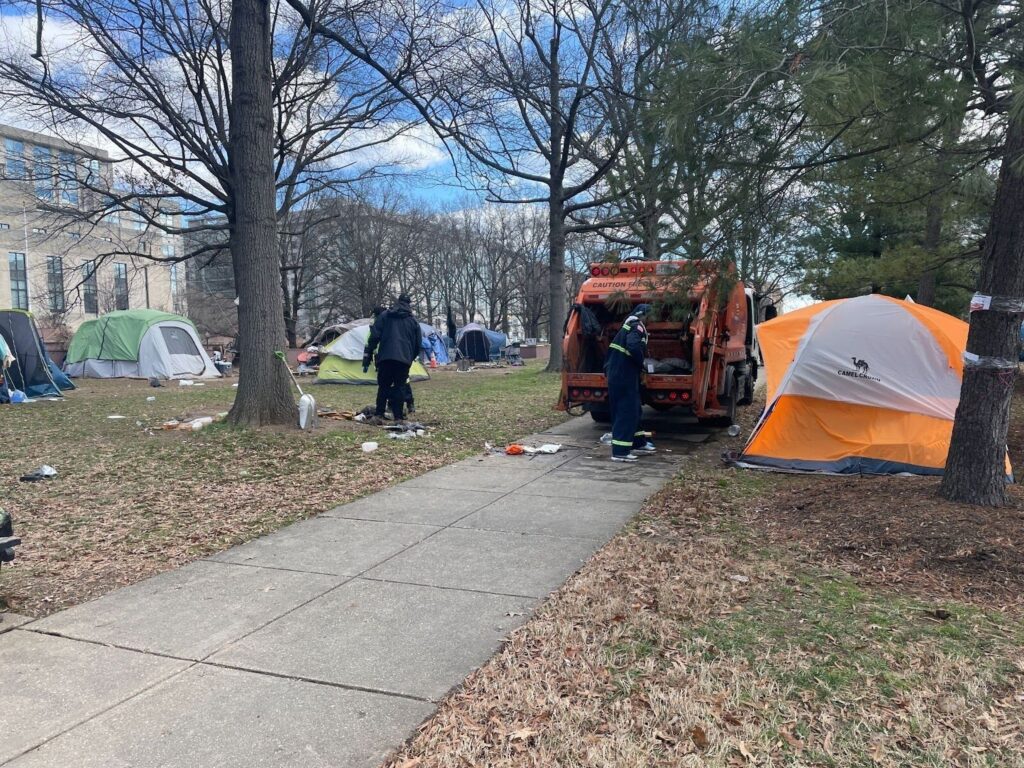By 10 a.m. on July 13, two encampments in the NoMa neighborhood dissipated, leaving remnants of the lives of those who resided there.
As per the D.C. Office of the Deputy Mayor of Health and Human Services (DMHHS), the encampments were assessed and on June 29, given 14 days notice that the sites would be cleared.
An encampment located at 111 K St. NE was marked by a singular red tent, wedged between the overpass and the building to its right. The encampment clearing was completed by 9:50 a.m. on July 13, and was scheduled to include a full clean up and a biohazard removal, according to the DMHHS website. This clearing was conducted in accordance with D.C.’s “no camping” ordinance.
The second encampment located between 1st and C St. NW and 2nd and D St. NW was cleared out by 9:30 a.m. on the morning of July 13. No tents or individuals were present, yet there were clothes, shoes and other items left behind. This encampment clearing was also scheduled to include a full clean up and biohazard removal.
According to DMHHS, encampment protocol engagements are a cross-agency effort. This means once DMHHS receives reports of encampments, they conduct outreach and complete assessments where they decide whether or not some place qualifi es as an encampment.
D.C. ‘s encampment protocol dictates that the encampment receive 14 days written notice that the clearing will take place. It is understood that during this time, residents will be connected with necessary and appropriate services which might provide aid for periods of transition. Such services can include connecting individuals with the Department of Behavioral Health, Department of Human Services or with other non-governmental organizations like local shelters.








